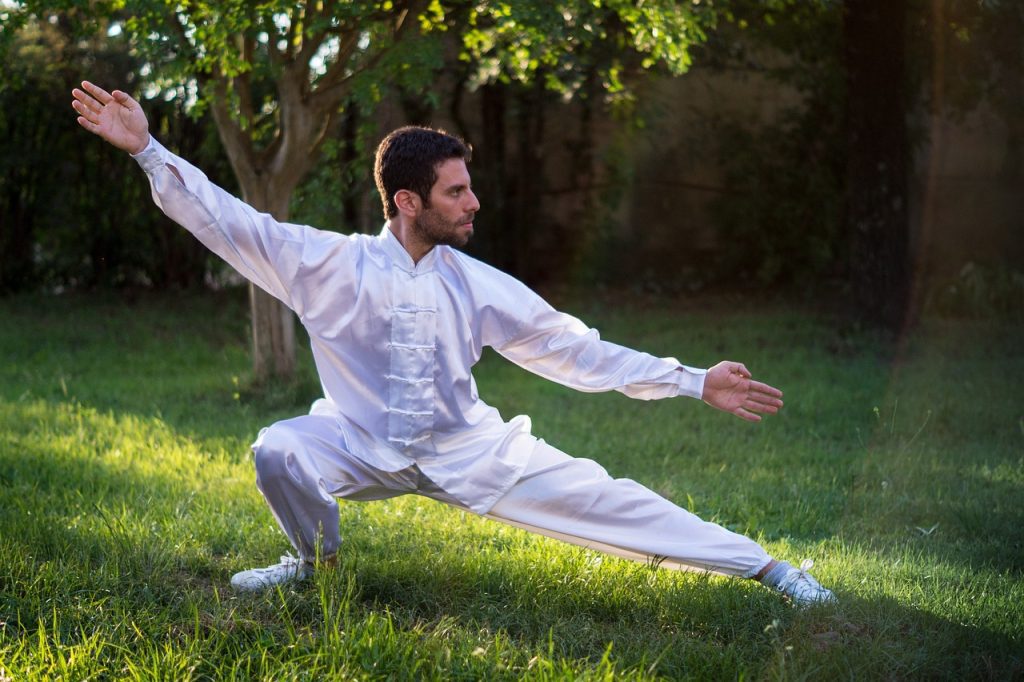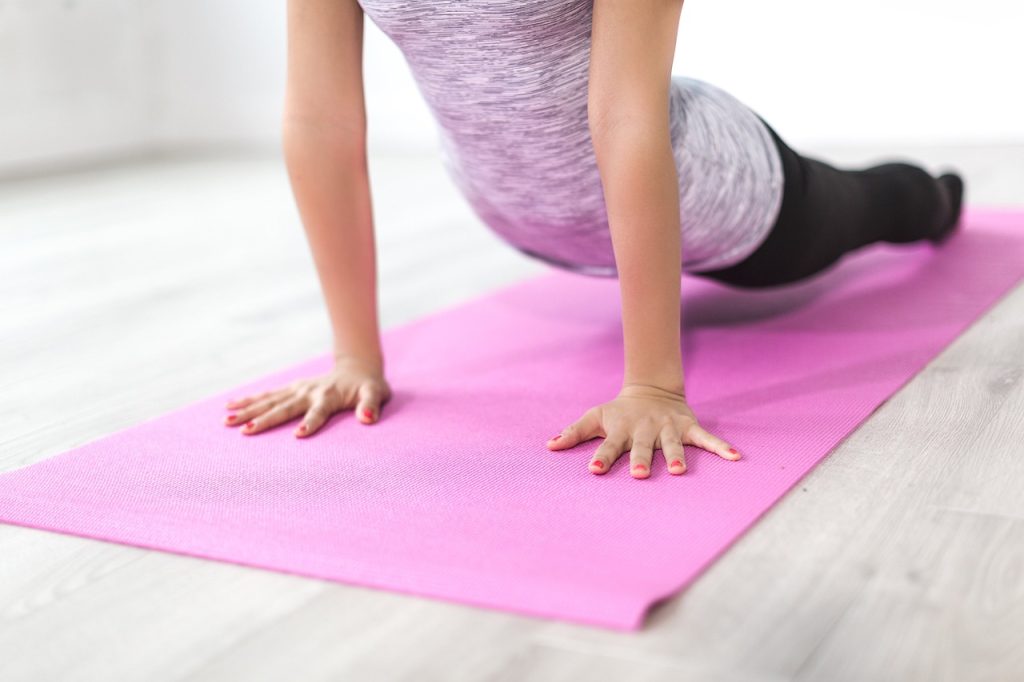Meditation is a practice that has been popular for centuries for promoting mental and physical well-being. One of the most significant benefits of meditation is its ability to ease anxiety. Anxiety is a common problem that affects millions of people worldwide, and it can take many forms, including generalised anxiety disorder, social anxiety disorder, and panic disorder. In this post, we will explore how meditation can help to ease anxiety and how it can be incorporated into daily life.
What Is Anxiety and How Does It Effect People?

First, it is important to understand what anxiety is and how it affects the body and mind. Anxiety is a common emotional state that affects millions of people worldwide. It is characterised by feelings of fear, worry, and unease. Anxiety is a natural response to stress, and it can take many forms, including Generalised Anxiety Disorder (GAD), Social Anxiety Disorder (SAD), and Panic Disorder. In the following few paragraphs, we will explore what anxiety is, its causes, and its effects on the body and mind.
The NHS defines anxiety as a feeling of unease, such as worry or fear, that can be mild or severe. It is a normal response to stress, but it can become excessive or chronic, leading to a disorder. GAD is a common type of anxiety disorder that is characterised by excessive and unrealistic worry about everyday situations. Social Phobia, or SAD, is an excessive fear of social situations and being judged by others. Finally, Panic Disorder causes sudden and unexpected panic attacks that can cause physical symptoms such as heart palpitations, sweating, and shaking.
We don’t truly understand the causes of anxiety, but esperts believe it to be a combination of genetic, environmental, and psychological factors. People with a family history of anxiety are more likely to develop the disorder. Traumatic life events, such as the death of a loved one, a divorce, or a job loss, can also lead to anxiety. Chronic stress and certain medical conditions can also contribute to the development of anxiety.
Anxiety and the Body and Mind
Anxiety can have a significant impact on the body and mind. When a person is anxious, the body goes into “fight or flight” mode, releasing stress hormones such as cortisol and adrenaline. These hormones can cause physical symptoms such as increased heart rate, sweating, and muscle tension. Anxiety can also cause mental symptoms such as negative thoughts, feelings of impending doom, and difficulty concentrating. Chronic anxiety can lead to fatigue, insomnia, and other health problems.
To summarise, anxiety is a common emotional state characterised by feelings of fear, worry, and unease. It can take many forms, including generalised anxiety disorder, social anxiety disorder, and panic disorder. The causes of anxiety are not fully understood, but it is believed to be a combination of genetic, environmental, and psychological factors. Anxiety can have a significant impact on the body and mind, leading to physical and mental symptoms. It is important for individuals with anxiety to seek professional help, such as therapy, medication, or other forms of treatment.
How Does Meditation Ease Anxiety?

Meditation is an effective way to ease anxiety, but how does it work? People have used meditation for centuries to promote mental and physical well-being. It is a simple, yet powerful method that can reduce stress, improve focus, and promote relaxation. In this essay, we will explore how meditation works, the different types of meditation, and the benefits of incorporating meditation into daily life.
Meditation is a practice that involves focusing the mind on a particular object, thought, or activity. This focus helps to quiet the mind, reduce distracting thoughts and worries, and promote relaxation. The goal of meditation is to achieve a state of heightened awareness and inner peace.
There are several different types of meditation, each with its own unique focus and benefits. One popular method is mindfulness meditation, which involves paying attention to the present moment without judgement. This type of meditation helps to focus the mind and reduce distracting thoughts. Another type of meditation is Transcendental Meditation (TM), which involves the use of a mantra or sound to focus the mind. This type of meditation helps to reduce stress, improve focus, and promote relaxation.
Altering the Brain’s Neurochemical Environment
One of the main ways meditation works to ease anxiety is by altering the brain’s neurochemical environment. Research has shown that meditation can reduce the levels of stress hormones such as cortisol and adrenaline. It can also increase the levels of feel-good hormones such as serotonin and dopamine. Additionally, regular meditation can change the brain’s structure by increasing grey matter in the prefrontal cortex, which is responsible for decision making, attention, and self-control.
Meditation is a simple yet powerful practice that promotes mental and physical well-being. It works by focusing the mind, reducing distracting thoughts and worries, and promoting relaxation. There are several different types of meditation, each with its own unique focus and benefits. Regular meditation can change the brain’s neurochemical environment and structure, and can be used in conjunction with other treatments for conditions such as anxiety and depression. Incorporating meditation into daily life can bring many benefits to one’s mental and physical health.
Different Types of Meditation to Ease Anxiety

There are many different types of meditation to ease anxiety, each with its own unique focus and benefits. Let’s explore some of the most popular types of meditation and how they improve overall well-being.
One popular type of meditation is mindfulness meditation. This type of meditation involves paying attention to the present moment without judgement. It involves focusing on the breath, bodily sensations, or an object, and bringing the mind back to the present moment whenever it wanders. Mindfulness meditation helps reduce stress, improve focus, and promote relaxation.
Another type of meditation is Transcendental Meditation (TM). This type of meditation involves the use of a mantra or sound to focus the mind. The goal of TM is to transcend or go beyond the mind’s surface level of thoughts and emotions, to a deeper state of awareness and inner peace. This type of meditation helps reduce stress, improve focus, and promote relaxation.
Yoga Postures and Breathing Techniques
A third type of meditation is Yoga meditation. This type of meditation involves the practice of yoga postures and breathing techniques. The goal of yoga meditation is to unite the body and mind, and to promote relaxation and inner peace. Yoga meditation can help to reduce stress, improve focus, and promote overall well-being.
Another type of meditation is Loving-Kindness meditation, also known as Metta meditation. This type of meditation involves focusing on feelings of love and kindness towards oneself and others. The goal of Loving-kindness meditation is to cultivate compassion, empathy and understanding towards oneself and others. This type of meditation can help improve relationships, increase feelings of well-being and decrease feelings of anxiety and depression.

Lastly, guided meditation is a form of meditation where a person is led through the process by a teacher or a recording. This type of meditation can be helpful for beginners, or for people who have trouble quieting their minds during meditation. Guided meditation can be done in person or through an app, and it can be tailored to a specific goal such as relaxation, stress relief or visualisation.
Different Types of Meditation
There are many different types of meditation, each with its own unique focus and benefits. Mindfulness meditation, Transcendental Meditation, Yoga meditation, Loving-Kindness meditation, and Guided meditation are all popular methods that improve mental and physical well-being. Each type of meditation has its own unique focus and achieves different goals. It is important to try different types and find the one that works best for you. Incorporating meditation into daily life can bring many benefits to one’s mental and physical health.
Meditation can also be used in conjunction with other treatments for anxiety, such as therapy and medication. You can do it at home and practise it for as little as 5 to 10 minutes a day. This makes it an accessible and convenient way to manage anxiety.
Wrapping Up How to Ease Anxiety with Meditation
In conclusion, meditation is a powerful tool to help ease anxiety. It promotes relaxation, reduces stress, and helps to focus the mind. By incorporating meditation into daily life, individuals can take control of their anxiety and improve their overall well-being.
If you’re looking for more ideas on how to live your best life, then head over to our blog where we have loads of posts on many different topics.
Read More
- The Connection Between Manifestation and Gratitude
- Manifestation – Universal Energy, Visualisation, and Gratitude
- The Power of Having a Positive Mental Attitude
- Gynecomastia – The Causes, Symptoms, and Treatments
- The Importance of Eyelashes and Eyebrows
Disclaimer: The information provided on Healthy Lifestyles for All is intended for general educational purposes only and should not be considered as medical advice. Please consult with your GP or other health professional before making any significant changes to your diet, exercise routine, or any other aspect of your lifestyle. We are not responsible for any adverse effects or consequences resulting from the use of the information provided on our blog.
Comments: I hope you enjoyed reading this post as much as I enjoyed writing it. If you liked it, please leave a comment. If you didn’t like it, disagree with something I have written (I’m okay with that), or think I got something wrong (that’s okay too), please leave a comment as well. We only truly learn from our mistakes, so I am happy to have mine pointed out.
Affiliate Links: Please also note that I may make a small amount of money if you buy one of the products I recommend in any of my blog posts. Rest assured that I have done my own due diligence, and only recommend products that have been tried and tested, and have extremely good feedback. Additionally, many of the products I recommend have 30 or 60-day money-back guarantees, so you can buy in the confidence that if a particular product is not right for you, you can get a refund.

